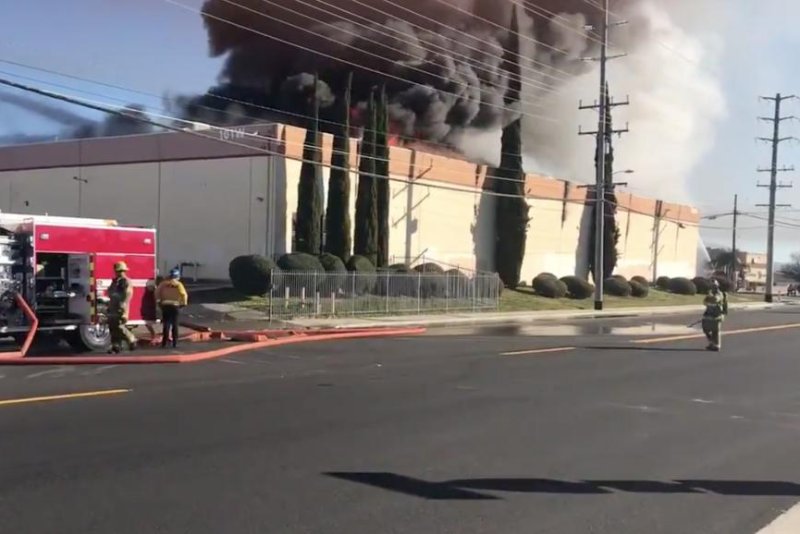NOW USC JANITOR'S KIDS CAN AFFORD GO TO USC

The University of Southern California expanded its financial aid package Thursday. Photo by aastock/Shutterstock
Feb. 20 (UPI) -- The University of Southern California said Thursday tuition will be free to students whose families make $80,000 or less.
The announcement was part of a financial aid expansion to benefit low- and middle-income families, a university statement said. Along with offering tuition free to students whose families have an annual income of $80,000 or less, owning a home will not be counted in determination of a student's financial need.
The change will be phased in with new entering classes beginning in the fall of 2020 and the spring of 2021.
"We're opening the door wider to make USC education possible for talented students from all walks of life," USC President Carol Folt said in the statement. "This significant step we are taking today is by no means the end of our affordability journey. We are committed to increasing USC's population of innovators, leaders and creators regardless of their financial circumstances. Investing in the talent and diversity of our student body is essential to our educational mission."

The University of Southern California expanded its financial aid package Thursday. Photo by aastock/Shutterstock
Feb. 20 (UPI) -- The University of Southern California said Thursday tuition will be free to students whose families make $80,000 or less.
The announcement was part of a financial aid expansion to benefit low- and middle-income families, a university statement said. Along with offering tuition free to students whose families have an annual income of $80,000 or less, owning a home will not be counted in determination of a student's financial need.
The change will be phased in with new entering classes beginning in the fall of 2020 and the spring of 2021.
"We're opening the door wider to make USC education possible for talented students from all walks of life," USC President Carol Folt said in the statement. "This significant step we are taking today is by no means the end of our affordability journey. We are committed to increasing USC's population of innovators, leaders and creators regardless of their financial circumstances. Investing in the talent and diversity of our student body is essential to our educational mission."
RELATED Colorado university to offer cannabis science degrees
Folt was named USC president last year amid an admissions bribery scandal in which prosecutors said dozens of wealthy parents bribed exam administrators and school officials to get their children into prestigious schools. USC was among those schools, along with some others such as Yale, Georgetown, Stanford, and the University of Texas though none of the schools were accused of complicity in the case.
The financial aid expansion will increase undergraduate aid by more than $30 million annually, allowing the university to provide more financial assistance to over 4,000 students a year once fully implemented, according to the statement. It is estimated that approximately one-third of the fall 2020 and spring 2021 classes will benefit from the financial assistance.
The Los Angeles Times said that the changes will place the private USC on par with the public University of California as far as generous aid. Other elite private universities like Harvard and Stanford provide tuition-free educations to families earning as much as $150,000 annually, but their endowments are much larger. Harvard's endowment is $40.9 billion and Stanford's is $27.7 billion, compared to USC's $5.7 billion.
Folt was named USC president last year amid an admissions bribery scandal in which prosecutors said dozens of wealthy parents bribed exam administrators and school officials to get their children into prestigious schools. USC was among those schools, along with some others such as Yale, Georgetown, Stanford, and the University of Texas though none of the schools were accused of complicity in the case.
The financial aid expansion will increase undergraduate aid by more than $30 million annually, allowing the university to provide more financial assistance to over 4,000 students a year once fully implemented, according to the statement. It is estimated that approximately one-third of the fall 2020 and spring 2021 classes will benefit from the financial assistance.
The Los Angeles Times said that the changes will place the private USC on par with the public University of California as far as generous aid. Other elite private universities like Harvard and Stanford provide tuition-free educations to families earning as much as $150,000 annually, but their endowments are much larger. Harvard's endowment is $40.9 billion and Stanford's is $27.7 billion, compared to USC's $5.7 billion.
RELATED David Crosby, Joe Walsh to hold Kent State benefit concert
The announcement comes amid rising costs of college education. Tuition alone at USC cost $57,256 in 2019-20. With housing, food, books and other costs such as transportation included it was $77,459 the same year.
"USC is committed to educating the strongest minds, independent of background or ability to pay," USC Provost Charles Zukoski said in a statement.













